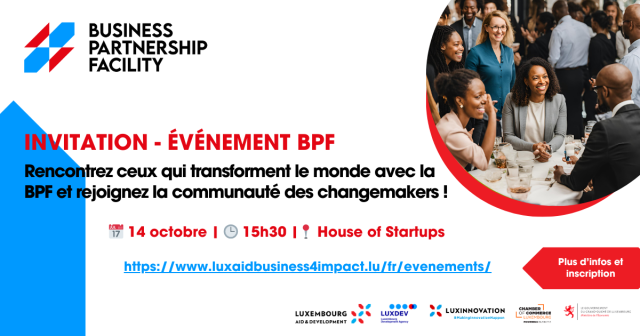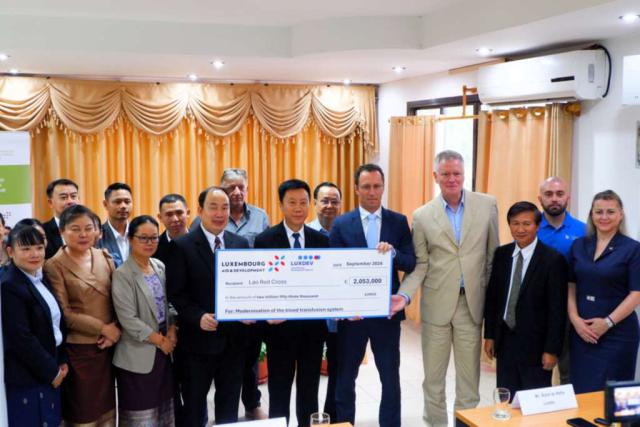News
Discover the latest news from LuxDev and follow the progress of the cooperation projects and programmes implemented by the Agency.
-

Mongolia 14.10.2024
Presentation of the Order of the Polar Star of Mongolia to Dr PATTE for his contribution to Luxembourg Cooperation projects
Presentation of the Order of the Polar Star of Mongolia to Dr PATTE for his contribution to Luxembourg Cooperation projects -

Laos 07.10.2024
LuxDev and Uni.lu, a 6-month review of integration with Rule of law, access to justice and good governance programme
LuxDev and Uni.lu, a 6-month review of integration with Rule of law, access to justice and good governance programme -

Multi-country 26.09.2024
Business Partnership Facility event - meet the pioneers and join the community of changemakers!
Business Partnership Facility event - meet the pioneers and join the community of changemakers! -

Laos 20.09.2024
Improved access to justice for Lao citizens through continued support from Luxembourg
Improved access to justice for Lao citizens through continued support from Luxembourg -

Laos 16.09.2024
Luxembourg Development Cooperation Supports Lao Red Cross with High-Tech Blood Cold Chain Equipment
Luxembourg Development Cooperation Supports Lao Red Cross with High-Tech Blood Cold Chain Equipment -

Kosovo 12.09.2024
Enhancing transparency: Parliament embraces E-Voting system
Enhancing transparency: Parliament embraces E-Voting system -

Multi-country 05.09.2024
Launch of the 12th edition of the Business Partnership Facility
Launch of the 12th edition of the Business Partnership Facility -

Kosovo 04.09.2024
New partnership to enhance skills for future jobs
New partnership to enhance skills for future jobs -
Laos 02.09.2024
Cross-border Cooperation: Lao teachers upgrade their skills with training from Vietnamese colleagues
Cross-border Cooperation: Lao teachers upgrade their skills with training from Vietnamese colleagues -
Laos 22.08.2024
HRD in Vientiane paves the way for enhanced vocational training aligned with Labour Market Demands
HRD in Vientiane paves the way for enhanced vocational training aligned with Labour Market Demands -

Kosovo 16.08.2024
Improving employment through incentivising Lifelong Learning
Improving employment through incentivising Lifelong Learning -

Laos, Vietnam 01.08.2024
A promising South-South Cooperation in vocational training between Lao PDR and Vietnam
A promising South-South Cooperation in vocational training between Lao PDR and Vietnam

